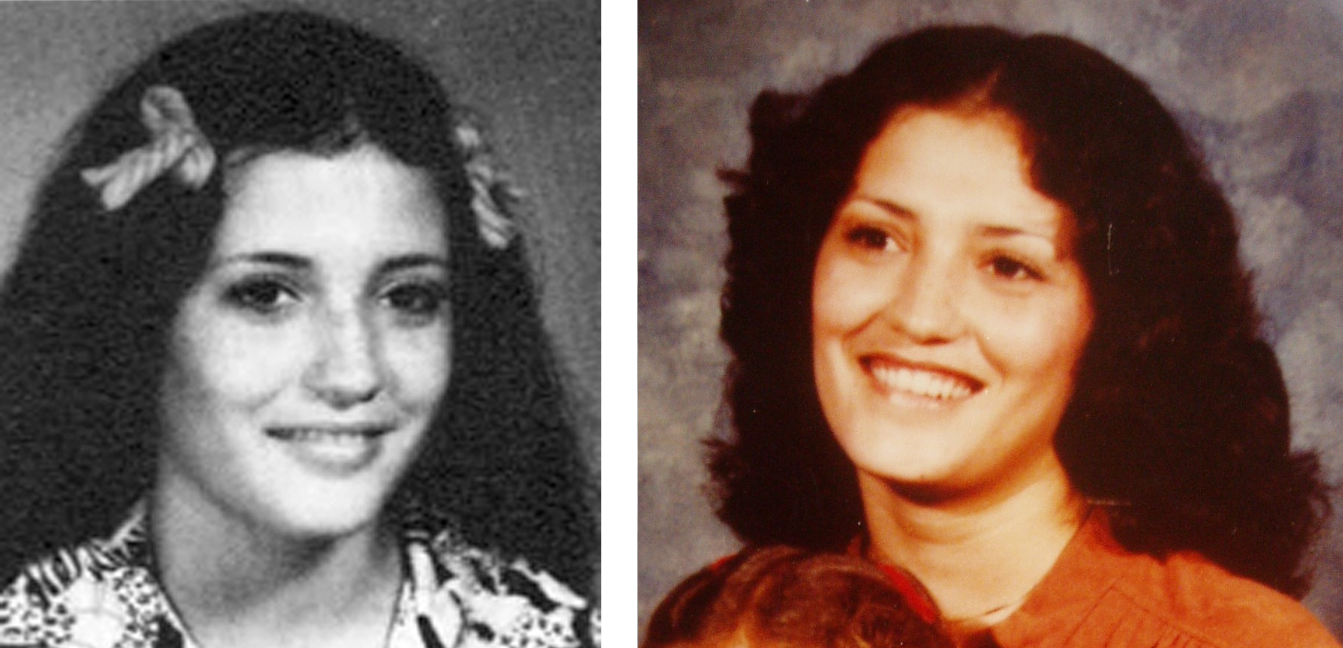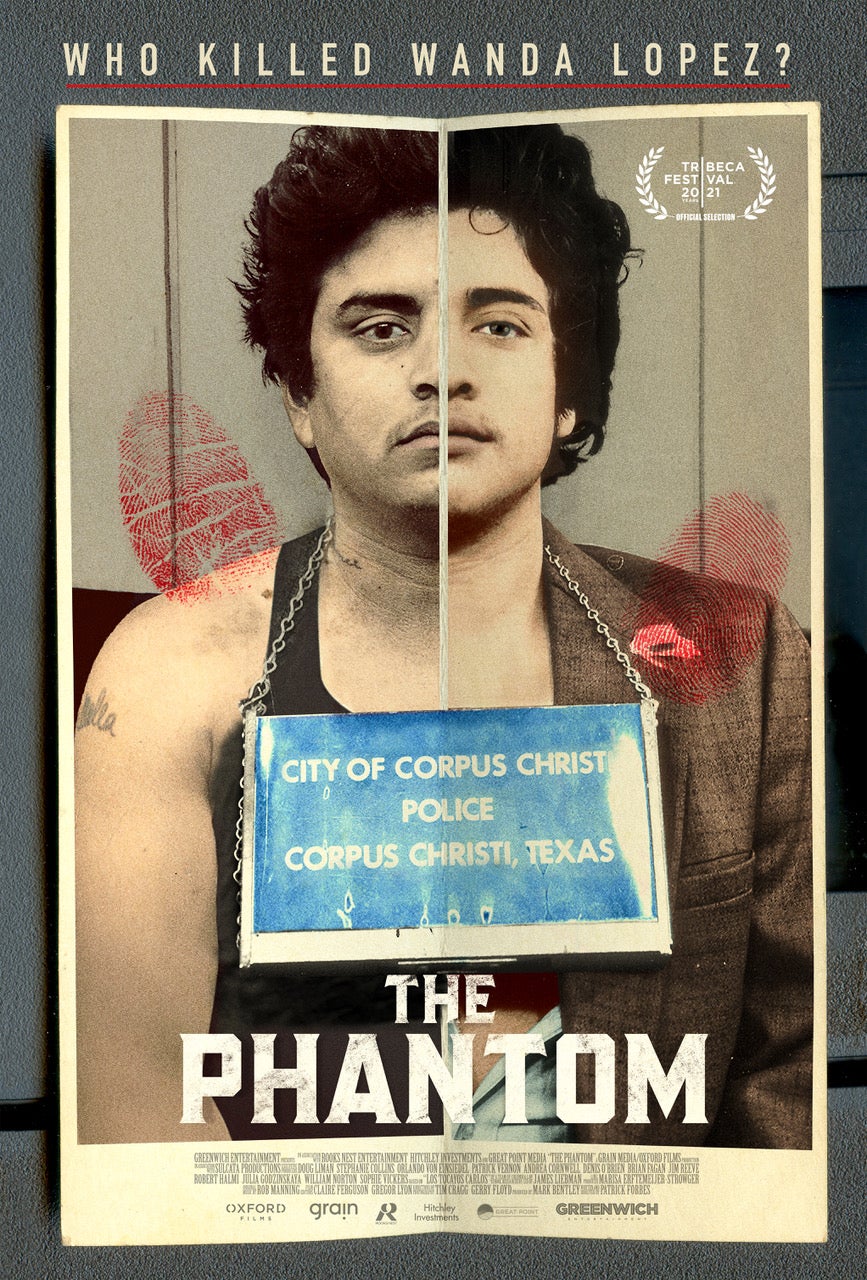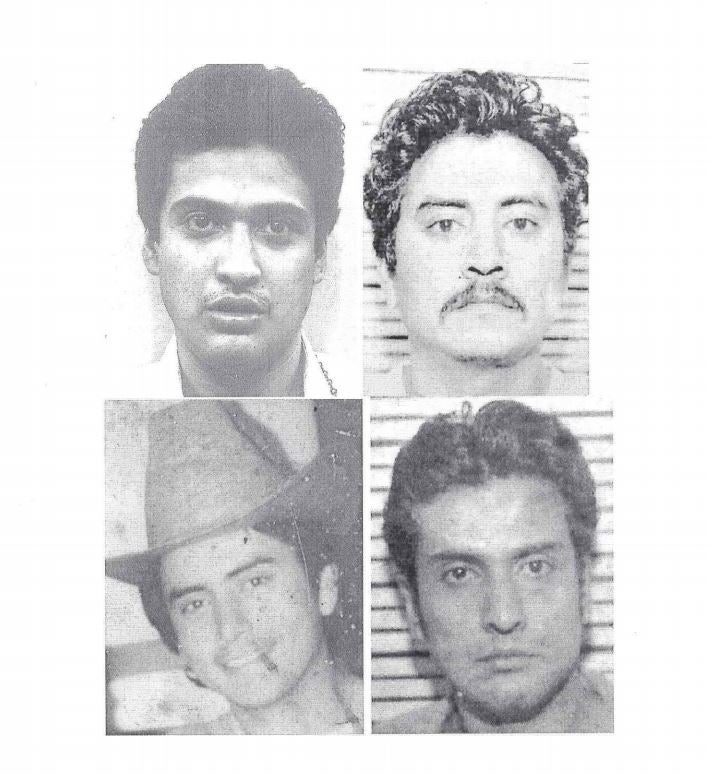A Texas man was executed for a murder he likely didn’t commit. A new documentary asks what went wrong
Carlos DeLuna was executed in 1989 for the murder of Wanda Lopez, a gas station clerk. ‘The Phantom’, a new documentary, points to a different culprit. Clémence Michallon reports


Your support helps us to tell the story
From reproductive rights to climate change to Big Tech, The Independent is on the ground when the story is developing. Whether it's investigating the financials of Elon Musk's pro-Trump PAC or producing our latest documentary, 'The A Word', which shines a light on the American women fighting for reproductive rights, we know how important it is to parse out the facts from the messaging.
At such a critical moment in US history, we need reporters on the ground. Your donation allows us to keep sending journalists to speak to both sides of the story.
The Independent is trusted by Americans across the entire political spectrum. And unlike many other quality news outlets, we choose not to lock Americans out of our reporting and analysis with paywalls. We believe quality journalism should be available to everyone, paid for by those who can afford it.
Your support makes all the difference.On 4 February 1983, Wanda Lopez, a 24-year-old gas station clerk in Corpus Christi, Texas, called 911. During a brief a call that would later be played as evidence in a murder trial, Lopez told the dispatcher on the other end of the line that a man with a knife had entered the convenience store where she worked behind an 18-inch counter.
“What’s he doing with the knife?” the dispatcher asked. “Has he threatened you in any way? What does he look like? Is he a white male? Black? Hispanic? Tall? Short?”
The young clerk answered the questions, at first in a calm tone, then growing clearly distressed. Ninety seconds into the call, she’s heard screaming – a high-pitched, chilling shriek. The recording ends shortly afterwards.
Stabbed through her left breast with a knife, Lopez died that night. Investigators found a man hiding under a truck close to the crime scene; a single eyewitness identified him as the killer. Carlos DeLuna was convicted of Lopez’s murder on 20 July 1983 and sentenced to death the next day. He was executed on 7 December 1989, having proclaimed his innocence for six years.
Based on the implacably swift timeline of the proceedings, DeLuna’s case could seem open and shut, the easy conviction of an easily caught culprit. But years of scholarly research, a book, and now, a new documentary, assert with quasi-certainty that DeLuna was telling the truth; that he was innocent, and died for a crime he didn’t commit.
The Phantom, an 82-minute film by documentarian Patrick Forbes (whose previous topics of interest have included Brexit and Wikileaks, traces the story of what has been presented as one of the most flagrant miscarriages of justice in contemporary US history, and one of the most damning arguments against the death penalty. It’s available in the US via iTunes and Amazon, with negotiations under way for a release in the UK.
“The story is proof that the death penalty requires certainty if there is to be any justification for it,” Forbes tells me. “And this instance demonstrates that there can never be certainty, because what you believe one day can turn out to be absolutely wrong the next.”
As he stood accused of Lopez’s murder, DeLuna, along with his defence team, did present his version of the truth to authorities. He didn’t just assert his innocence; he also pointed them to the man he said was the real perpetrator. Carlos Hernandez, the person he designated, shared a name and a physical resemblance with DeLuna.
The similarities pretty much ended there. Law professor James Liebman, along with the Columbia DeLuna Project – a team of Columbia law students and private investigators from around the United States – have researched the case for years and presented new evidence to the public. As they wrote in the 2012 book The Wrong Carlos: Anatomy of a Wrongful Execution, Hernandez had “a history of armed robbery of convenience stores and deadly violence against Hispanic women”. He was also known to keep “the constant companionship of a lock-blade buck knife”.

Watch Apple TV+ free for 7 days
New subscribers only. £8.99/mo. after free trial. Plan auto-renews until cancelled

Watch Apple TV+ free for 7 days
New subscribers only. £8.99/mo. after free trial. Plan auto-renews until cancelled

How did it happen, then? In the presence of a potential other culprit – one whose criminal history would be enough to instill in a jury’s mind the reasonable doubt needed for an acquittal – how was DeLuna not only convicted, but executed on the back of that verdict?
DeLuna’s defence – that another man named Carlos had killed Lopez – was easy for the prosecution to deride. Carlos Hernandez, prosecutor Steven Schiwetz argued, was a “phantom” (hence the title), made up by DeLuna in a desperate lie. The documentary begins with Lopez’s 911 call and follows the thread of the court case from there, beginning with DeLuna’s conviction and execution and ending with Liebman’s deconstruction.
Forbes includes testimonies from a wide cast of characters in The Phantom, including Liebman himself. Years after DeLuna’s execution, after Liebman had done “a few studies” about capital cases, one of his students at Columbia Law School brought DeLuna to his attention, kicking off Liebman’s deep dive into the case.
“The first thing my colleague said was, This ‘some other dude named Carlos’ case? That’s the worst possible case, I wouldn’t spend any time on it,” Liebman tells Forbes. “Because he thought that was the defendant [DeLuna] was saying was so unlikely that it had to be made up.”
But Liebman hired a private investigator to look into another case out of Corpus Christi. While the PI was on location, Liebman asked if he could use any of his spare time to try to find Carlos Hernandez. Not long afterwards, the PI called back: he had found Hernandez’s records. “He looked just like the man they’d executed,” Liebman recounts in The Phantom. “My God. This is the real thing.”

During DeLuna’s trial, Hernandez wasn’t brought to the courtroom; as Liebman and his students write in their book about the case, The Wrong Carlos: Anatomy of a Wrongful Execution, the defence team “gave no bodily reality to ‘the phantom Carlos Hernandez’”. DeLuna’s attorney, Forbes points out, “had only 10 days and 150 bucks to do any research [into Hernandez]”, and was left at the time with “absolutely nothing to go on”.
Schiwetz, the book notes, insisted that he didn’t know of Hernandez and believed that DeLuna had made him up. The Phantom seeks answers from Schiwetz on that point too, to which he reiterates that he wasn’t aware of Hernandez and “didn’t hear about [him] until 10, 20 years later”. Another prosecutor, Ken Botary, contends that he “told [Schiwetz] it’s not a phantom, this is a real person” and that he believes the two “talked about it”, but Schiwetz wasn’t “too concerned” because he was “convinced he had the right person in his trial”.
Asked about this apparent discrepancy, Forbes doesn’t pick a side. “I don’t know what the truth of that exchange is, but I do know that Schiwetz was new in town, so he would have had no ostensible reason to know who Carlos Hernandez was,” he says. “He would have needed to be told.”
Throughout our conversation, Forbes keeps a respectful distance from his interview subjects. To him, DeLuna’s fate wasn’t the responsibility of a specific individual. Rather, it’s an indictment on the system in which the death penalty takes place – one where, in this instance, “everything that could go wrong did go wrong.”
“I don’t make my films to launch a crusade,” Forbes says. “I make my films out of curiosity. But I was profoundly shocked by the end. I just thought, this is fundamentally wrong. This has to change.”
Towards the end of the documentary, a police tape analysis suggests with devastating credibility that there were two suspects – as opposed to just DeLuna – at the scene the night of Lopez’s murder.
“One [person] is talking about a flannel shirt, the other is talking about a long-sleeved T-shirt, untucked,” Corpus Christi officer Bruno Mejia Jr says. “I then start to make the judgment that we may be talking about more than one person here.”
Forbes also hears from Raymond Nunez, a local resident who remembers watching the “raucous” unfold the night of Lopez’s murder. “I run over to the window, and I see one person running and ducking underneath the van,” he says. “And then about 30 seconds later I see another person running down the street. I could tell maybe they were Hispanic, that was about it.” It’s not hard to extrapolate these findings and testimonies into a case of mistaken identity: two men, one (DeLuna) found hiding under a truck, and the other (Hernandez) having fled.
Hernandez succumbed to liver disease in 1999, while imprisoned for a different crime (his parole was revoked after he threatened neighbours with a nine-inch knife). DeLuna has never been formally pardoned.

Back in July 2019, then-presidential candidate Joe Biden voiced his opposition to the death penalty, precisely because if the possibility of an irreversible, tragic mistake. “Because we can’t ensure that we get these cases right every time, we must eliminate the death penalty,” he tweeted at the time. Since then, Biden has become the first US president to openly oppose capital punishment, although he attracted criticism in the first months of his presidency for his lack of swift action on the issue. On 1 July, Attorney General Merrick Garland issued a moratorium on federal executions pending a review of policy changes enacted during Donald Trump’s presidency.
“The Department of Justice must ensure that everyone in the federal criminal justice system is not only afforded the rights guaranteed by the Constitution and laws of the United States, but is also treated fairly and humanely,” Garland wrote in the corresponding memorandum. “That obligation has special force in capital cases.”
He went on to highlight “serious concerns” about the death penalty, “including arbitrariness in its application, disparate impact on people of colour, and the troubling number of exonerations in capital and other serious cases”.
Perhaps even more troubling than the profound uncertainty at the heart of DeLuna’s case is the likelihood it could have remained hidden indefinitely. Interest in the case didn’t begin until the early 2000s, when Liebman and his co-researchers began re-examining it, and it wasn’t until 2012, with the publication of The Wrong Carlos, that news outlets in the US began reporting on DeLuna’s possible innocence.
“We have no idea how many Carlos DeLunas there are among the well over 1,300 men and women executed since the reinstatement of the death penalty in the 1970s,” Liebman writes in the book. “...Absent the many fortuities we have catalogued, the story of Carlos DeLuna would never have come to light.”
The Phantom is out in the US via iTunes and Amazon
